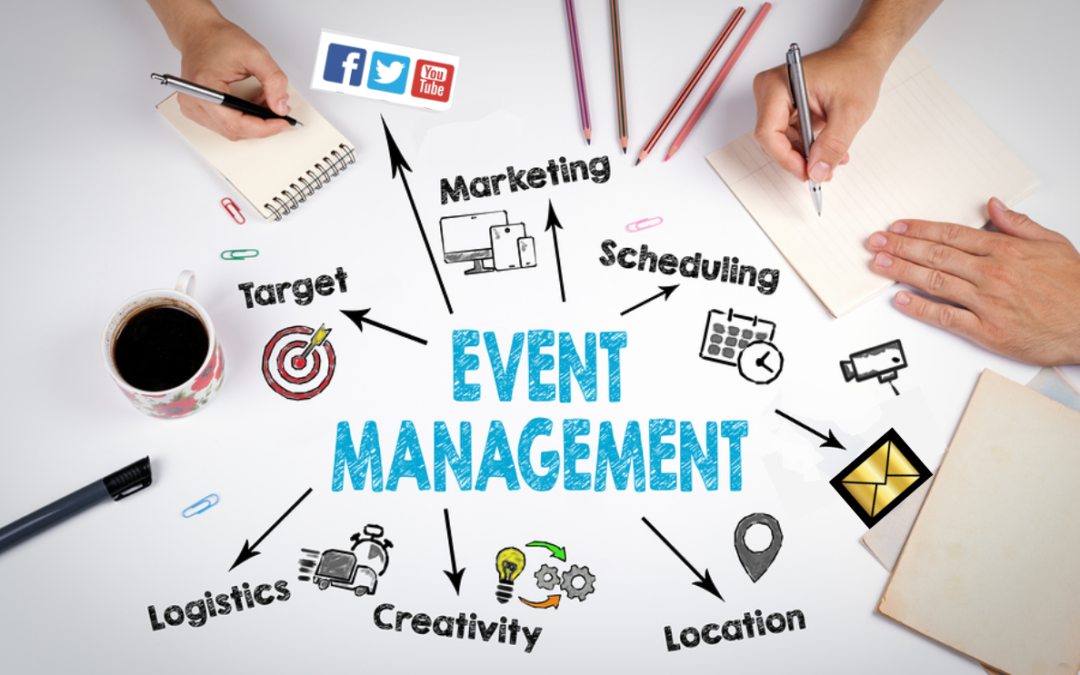As a seasoned B2B event organizer, the art of orchestrating successful events involves a delicate dance of strategy, meticulous planning, and flawless execution.
Undoubtedly, the world of B2B events is dynamic and ever-evolving and requires careful consideration of numerous factors to ensure an impactful experience for participants.
In this comprehensive blog, we will delve into the essential things to consider in B2B event planning, providing you with a roadmap for success.
Checklist for the B2B Event with Tips for Elevation
Here are the complete trips and tips for you, if you’re planning a B2B Event. So without further ado, let’s explore:
1. Define Clear Objectives:
The foundation of any successful B2B event lies in clearly defined objectives. Before diving into logistics, take the time to articulate what you want to achieve. Whether it’s lead generation, brand awareness, or knowledge exchange, having well-defined goals will guide every subsequent decision in the planning process.
Tip: Engage key stakeholders in a brainstorming session to ensure alignment on the primary objectives. Make the objectives SMART (Specific, Measurable, Achievable, Relevant, Time-bound) for clarity and accountability.
2. Know Your Audience:
Understanding your target audience is paramount. B2B events cater to professionals within specific industries, each with its own set of expectations and preferences. Conduct thorough research on your audience’s demographics, interests, and pain points to tailor the event to their needs.
Tip: Utilize surveys, interviews, and past event data to gather insights about your audience. Create attendee personas to represent different segments and personalize the event experience.
3. Choose the Right Format:
The format of your B2B event sets the tone for the entire experience. Whether it’s a conference, trade show, seminar, or a combination of these, the format should align with your objectives and cater to the preferences of your audience.
Tip: Consider the industry norms and trends when selecting the event format. Evaluate the pros and cons of each format based on your goals and audience preferences.
4. Strategic Venue Selection:
The venue is more than just a backdrop; it’s a crucial element that can impact the attendee experience. Choose a venue that aligns with your brand, is easily accessible, and has the necessary infrastructure to support your event requirements. However, you can also get assistance from B2B event companies in finding the right venue and with overall event management.
Tip: Visit potential venues in person to assess the ambience, facilities, and overall suitability. Negotiate favourable terms with the venue, and consider factors like parking, accommodations, and local attractions.
5. Comprehensive Budgeting:
Crafting a realistic budget is a fundamental aspect of B2B event planning. Consider all potential expenses, including venue costs, marketing, technology, catering, and unforeseen contingencies. A well-thought-out budget ensures financial transparency and prevents unpleasant surprises later in the planning process.
Tip: Allocate a contingency fund for unexpected expenses. Regularly track and update the budget throughout the planning process.
6. Technology Integration:
In the digital age, technology plays a pivotal role in enhancing the event experience. From mobile event apps for seamless navigation to interactive sessions leveraging virtual reality, embrace technology that aligns with your event goals and enhances attendee engagement.
Tip: Explore partnerships with tech providers to stay on the cutting edge of event technology. Train your team and attendees on using event technology to maximize its impact.
7. Engaging Content and Speakers:
Compelling content is the heartbeat of any B2B event. Create a program that offers valuable insights, addresses industry challenges, and sparks meaningful discussions. Equally important is securing dynamic and knowledgeable speakers who can captivate the audience.
Tip: Collaborate with industry thought leaders and influencers to add credibility to your event. Create a diverse agenda with a mix of keynote speakers, panel discussions, and interactive sessions.
8. Streamlined Registration Process:
A streamlined event registration process can be a major turn-off for attendees. Invest in a user-friendly online event registration company that allows for easy sign-ups, personalized agendas, and seamless communication. A smooth registration process sets a positive tone for the overall event experience.
Tip: Offer early-bird discounts or exclusive perks to incentivize early registration. Test the online event registration process from the attendee’s perspective to identify and iron out any potential issues.
9. Thoughtful Marketing and Promotion:
Effective marketing is the engine that drives attendance. Develop a multi-channel marketing strategy that leverages social media, email campaigns, content marketing, and partnerships to create a buzz around your event. Communicate the unique value proposition to attract your target audience.
Tip: Create engaging and shareable content to amplify your event’s reach. Leverage social media influencers and partners for wider visibility.
10. Post-Event Evaluation:
The event doesn’t end when the last session concludes. Post-event evaluation is critical for continuous improvement. Gather feedback from attendees, sponsors, and partners to identify strengths, weaknesses, and areas for enhancement.
Tip: Use survey tools to collect feedback and analyze data for actionable insights. Conduct a thorough debrief with your team to document lessons learned and areas for improvement.
Conclusion
B2B event planning is a multifaceted endeavour that requires careful consideration of numerous factors. By defining clear objectives, understanding your audience, selecting the right format and venue, budgeting effectively, embracing technology, curating engaging content, streamlining the registration process, executing thoughtful marketing, and conducting post-event evaluations, you are poised for success. As a B2B event organizer, mastering these considerations will not only elevate your events but also solidify your reputation as a leader in the industry. Happy planning! Thank you for reading till the end.







